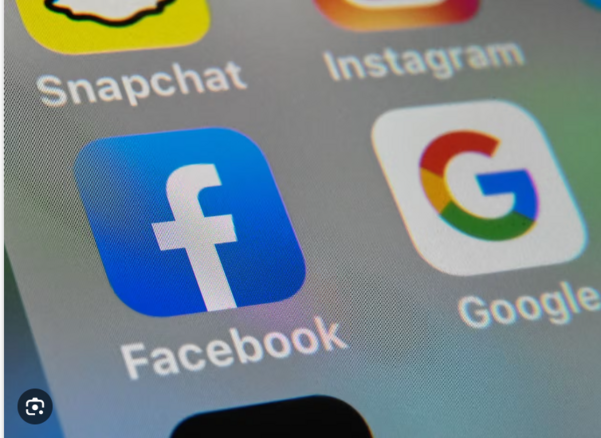by Harvey Oberfeld
July 3, 2023
I sympathize: I am well aware of the financial challenges squeezing Canada’s news media.
We’ve all seen the shuttering of newspapers, closures of radio and television stations and the widespread layoffs, buyouts and diminished newsrooms at those media outlets which have survived.
We should all care.
A vibrant, thriving, competitive news media is critical in a thriving democracy … and each cut or closure hurts us all.
But let’s keep it real: the owners of Canada’s media marketplace are no longer independent family-owned enterprises (the Siftons, Thomsons, Griffiths, Aspers, Shaws, Irvings, Peladeaus) or what many saw historically as ideologically-driven politically-influential news voices (Toronto Star, National Post, Le Devoir): today, many Canadians believe our media are mostly just investment holdings of huge media conglomerates … corporations run by bean counters out solely to maximize profits, often by providing the cheapest, canned local or imported foreign entertainment/sports content … and, if they could, they’d say to hell with the news.
The squeeze has been on for more than a decade: some of it driven by rising costs; some by the growing variety of divergent news sources; but some the result of declining journalistic standards and content, fawning political correctness and even outright propagandizing.
Newspapers … in today’s instant digital information age … have had to drastically change: emphasizing not so much immediacy, but in depth coverage, analysis and investigative journalism. Sadly, fewer subscribers have been willing to pay for that.
Radio and tv, having become technologically more expensive operations, made things even worse for themselves by putting beancounters in charge: cutting staff numbers, buying out senior journalists, hiring fewer and cheaper inexperienced replacements, and, as a result, diminishing coverage in both quantity and quality … chasing many listeners/viewers away completely or to alternative Internet sites.
The Internet has increasingly become where those who DO still care about news, politics, opinion, analysis have been able to access almost all of it … FREE: often through links back to the media outlets on Google and Facebook etc.
No doubt, Canada’s media future looks bleak.
Bill C-18, the Online News Act, is the federal government’s response: legislation that would require Internet sites like Google and Facebook to PAY a fee for each and every link they provide to Canadian media sites/stories. The money … in the hundreds of millions of dollars annually … would go into a special fund, to be administered and divided up by the media corporations themselves, not the government.
Google and Facebook’s response? No! They both announced that, they will not pay, and within a few months they will just CEASE providing links to Canadian stories/news websites.
That would be a disaster for Canada: denying millions of Canadians digital access to Canadian media; forcing them to individual media websites (some with paywalls); or relying on foreign coverage of Canadian news; and, pushing to the fore all kinds of social media website versions of events (some good, some questionable, some totally wacky).
The federal government and the digital media giants are so far deadlocked … neither side showing any willingness to back down.
Media and government have been down this path before.
Australia passed legislation two years ago trying to force the digital giants to pay up, but it was left to media companies and digital sources to negotiate arrangements.
“There were 34 deals made amounting to more than AU$200 million across the media sector, which represents about 61 per cent of the market being covered by at least one deal,” according to “theconversation.com”. (Read the full article here: https://theconversation.com/canadas-online-news-act-may-let-meta-and-google-decide-the-winners-and-losers-in-the-media-industry-208088.
“There was, however, a significant difference between Google and Meta when it came to the deals made. Meta only made deals with 13 media organizations, whereas Google secured about 23 deals.”
So what happens to the rest? Dropped? Blocked? Too small to fight for compensation? In effect, being censored out of the market.
I have a better solution for Canada.
Our media sources on their own, or working with Google/Facebook etc., should program their websites so anyone who visits a Canadian media website via an exterior link must watch a 15-second or 30-second advertisement before proceeding to view/read the desired article.
Those little ads would add up … attracting traditional and new media advertisers, generating hundreds of millions of dollars in new revenues for media outlets and giving advertisers millions of additional viewers/listeners/readers!
The technology, in fact, already exists: pop up ads often offer subscriptions when you visit media websites. And there are all kinds of websites that require you to watch promotional ads before proceeding to content on their site.
Why not expand that to media links: pushing/plugging cars, pharmaceuticals, retail, restaurants, groceries, and, yes, my current least favorite, on-line betting? Before you get to access the article you have linked to read, listen or watch.
Under this “watch to watch” (or read) system, those media outlets who draw the larger numbers of readers/viewers would also benefit most … but every website that has a link clicked on would cash in.
That would still protect Canadians’ access to information from across Canada (not just foreign news sites); expand the paying audience for Canadian media; and, hopefully, stave off further cuts and qualitative reductions by the beancounters in the boardrooms.
And the war between Canada and Google could be averted.


